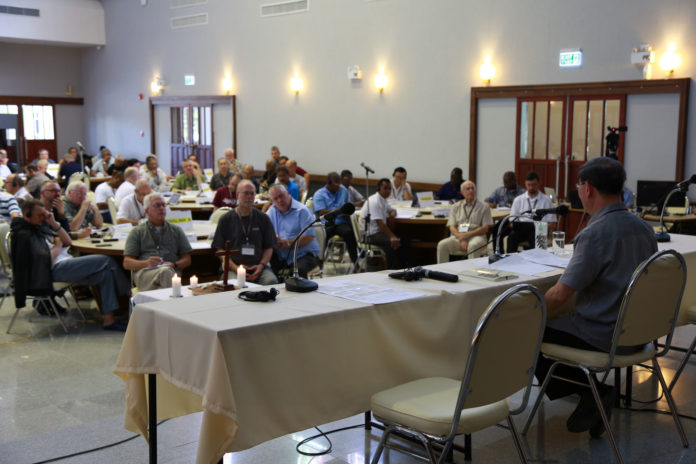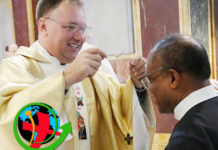On this second day of retreat, Morning Prayer was led by the Liturgy Commission.
Cardinal Tagle then began his third input.
His theme was Visionary and Effective Leadership for Mission.
Since the talks of the Cardinal are available online, only the main points will be outlined.
The Cardinal reminded us that our leadership goes beyond management and administration. Good administrators are not always good leaders.
Most manuals on leadership come from the business world, and we can learn from this.
One author asks the question “Can you truly become a leader from a seminar or a classroom?”
Moving to another author Bob Johansen whose book “Leaders make the future”, the Cardinal echoed what he took from this author.
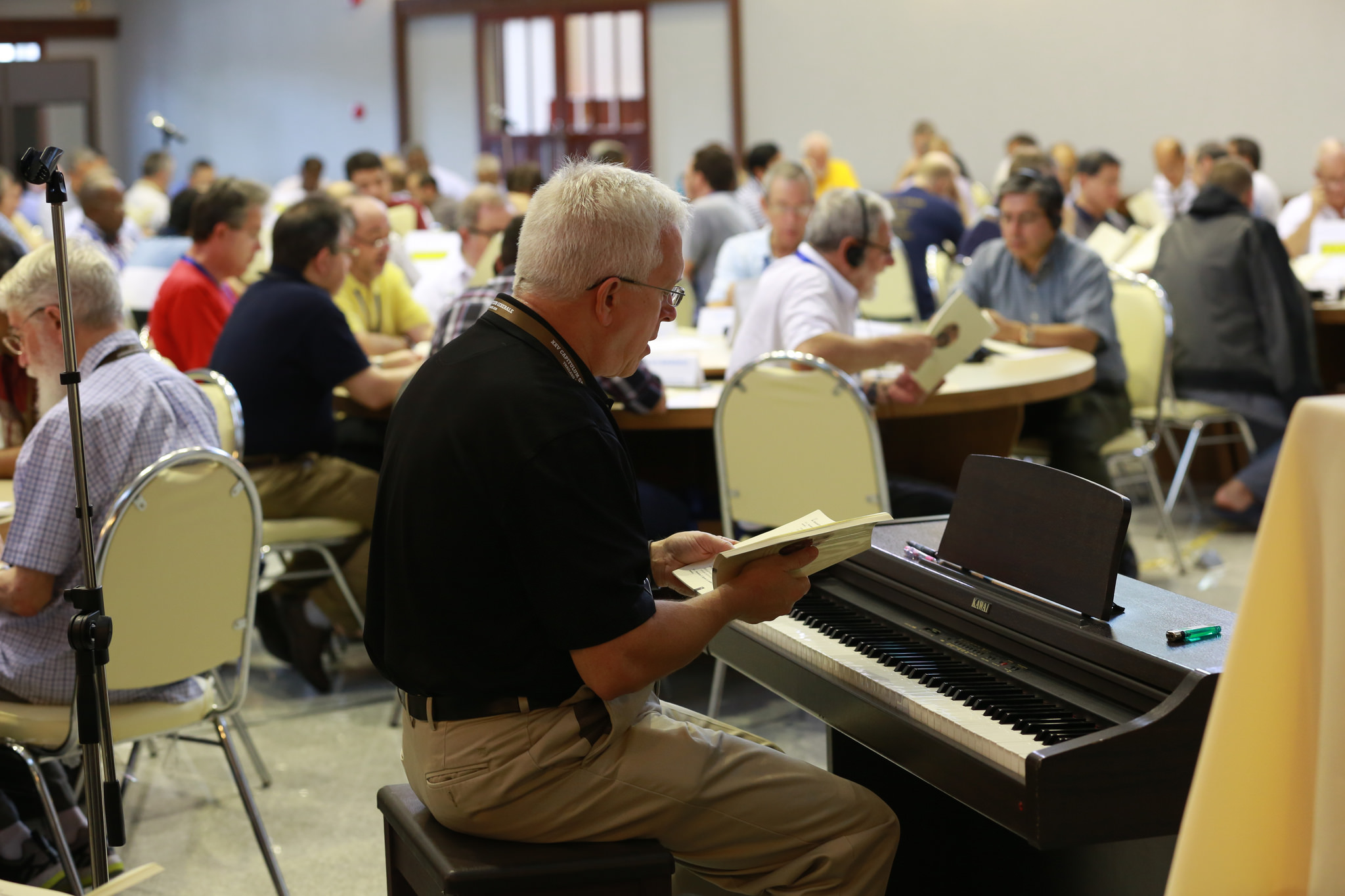 The author cites the our contemporary world is characterised by: a) volatility b) uncertainty c) complexity d) ambivalence. (VUCA)
The author cites the our contemporary world is characterised by: a) volatility b) uncertainty c) complexity d) ambivalence. (VUCA)
This reality will only increase and spread. And the danger is that we will get seminarians who are products of VUCA.
The first action of a leader must make us listen to the voice of VUCA. In such an atmosphere a true leader can emerge.
The challenge is to move from:
Volatility to Vision
Uncertainty to Understanding
Complexity to Clarity
Ambivalence to Agility.
One needs to listen to effect this transformative change.
Solidarity means profound listening. Changing means being fluid and humble.
Humility leads to empathy.
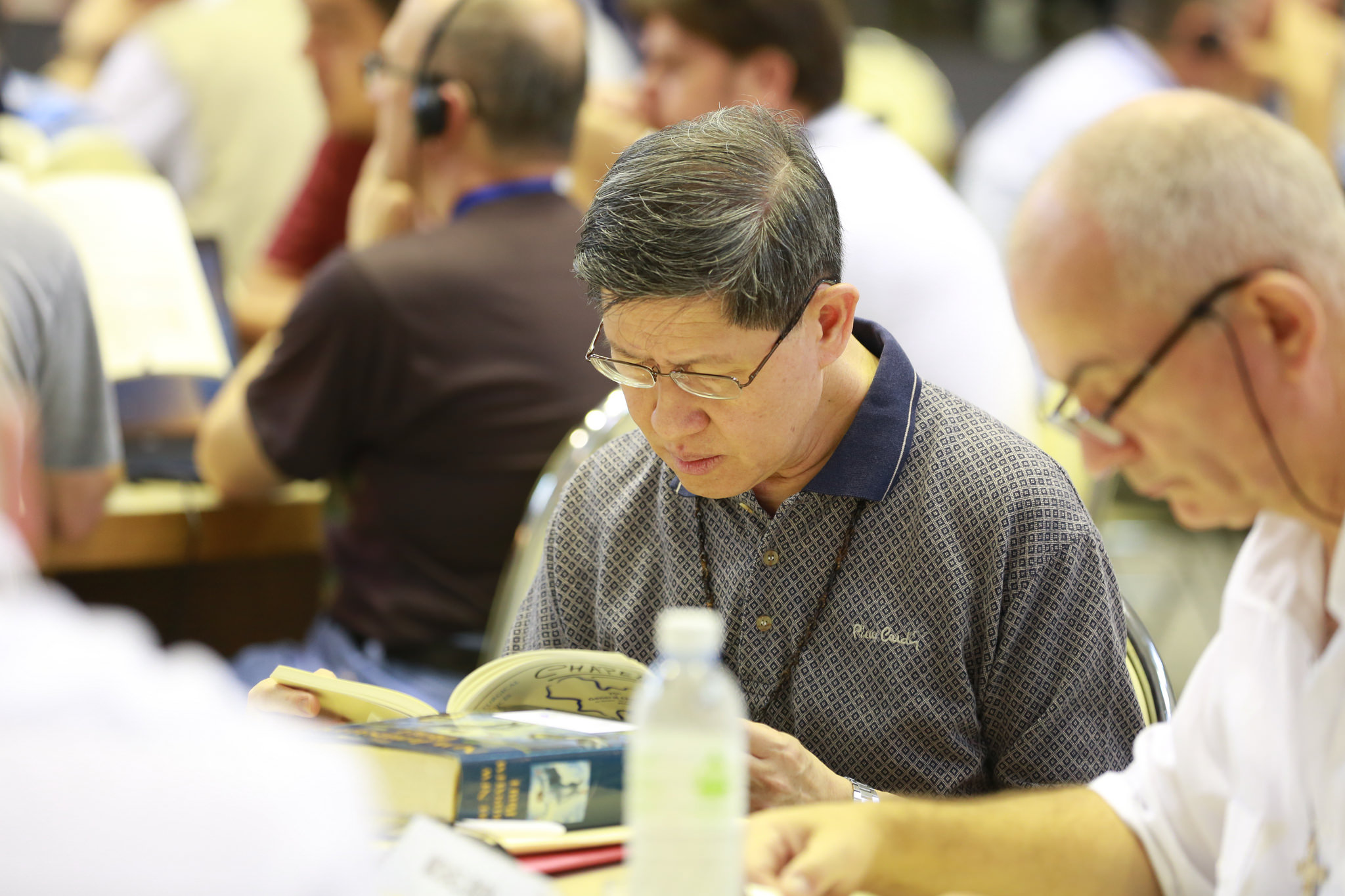 The Cardinal gave a example of a refugee mother whose cry was “What future is there for my children” – and in Asia, the highest suicide rate exists in the richest countries.
The Cardinal gave a example of a refugee mother whose cry was “What future is there for my children” – and in Asia, the highest suicide rate exists in the richest countries.
We need to distinguish between real problems and other things. Many leaders look at everything as problems. And so many leaders become problem solvers.
Often what we regard as problems are in fact dilemmas. Dilemmas are problems that will not go away.
“How do you solve a problem like Maria?” Is Maria a problem – or rather a dilemma? Are your members problems or dilemmas?
With problems you have to find solutions. For dilemmas you have to tell stories. The leader of today must be a story teller and not just a problem solver. This is how we show solidarity with the poor. It is their story that we tell.
He then moved on to Church leadership and again referred to a contemporary author.
A leader must pay attention to:
1. Vision
What does God want us to become now? Vision comes from prayer and discernment. So the community becomes vision-led rather than person-led. (For example, a new parish priest might set out to delete the memory of the former one).
The Vision that galvanises a community:
Vision should excite a community? It should empower community.
Vision gives us criteria for evaluating our mission and community life.
Vision lifts our eyes.
2. Culture.
A leader must know the culture of his community and cultures in which he lives.
Who are the gossips in community? It is important to identify them. Who are the whisperers? The power behind the throne.
3. Team formation.
A leader must exercise relational authority – not just juridical or canonical norms – an authority based on the Vision.
4. Integrity.
This embodies the vision of the organisation in its very person. This brings authenticity. This leadership is also important in family life. Even parents can fail because of lack of integrity.
3. Jesus
Roles: shepherd/king/prophet/servant. Not simply leader in secular sense.
We exercise leadership by becoming servant.
Jesus understood himself as a missionary.
Jesus sees himself as the one sent by the Father. He was consumed by this. He knew he would suffer and die. ‘Save me from this hour’. ‘ Now this is the hour. Father glorify your name’
To glorify the Father.
Today’s leaders are often attached to ambition. Ambitious people never serve. They seek self glorification.
NB. The self identity of Jesus. Even at the hour of his death he could say “I will glorify the Father”.
Jesus trusted his disciples
They were aware that as a rabbi Jesus was quite different from others. Jesus chose his ‘students’.
He chose the students by calling those who would give his school a very bad name.
Jesus asks “what do others say of me…..”
Peter’s answer is a litany of possibilities.
And Jesus’ response is “You are Peter.. ”
And the dialogue continues with eventually Peter ending with 3 names: Simon:Peter:Satan
And then he sends them out giving them authority over unclean spirits.
He gives them real authority – a simple authority that changes things.
Pride destroys leaders
Pride destroyed mission
Pride destroys community.
The cardinal concluded by asking us to assume real authority.
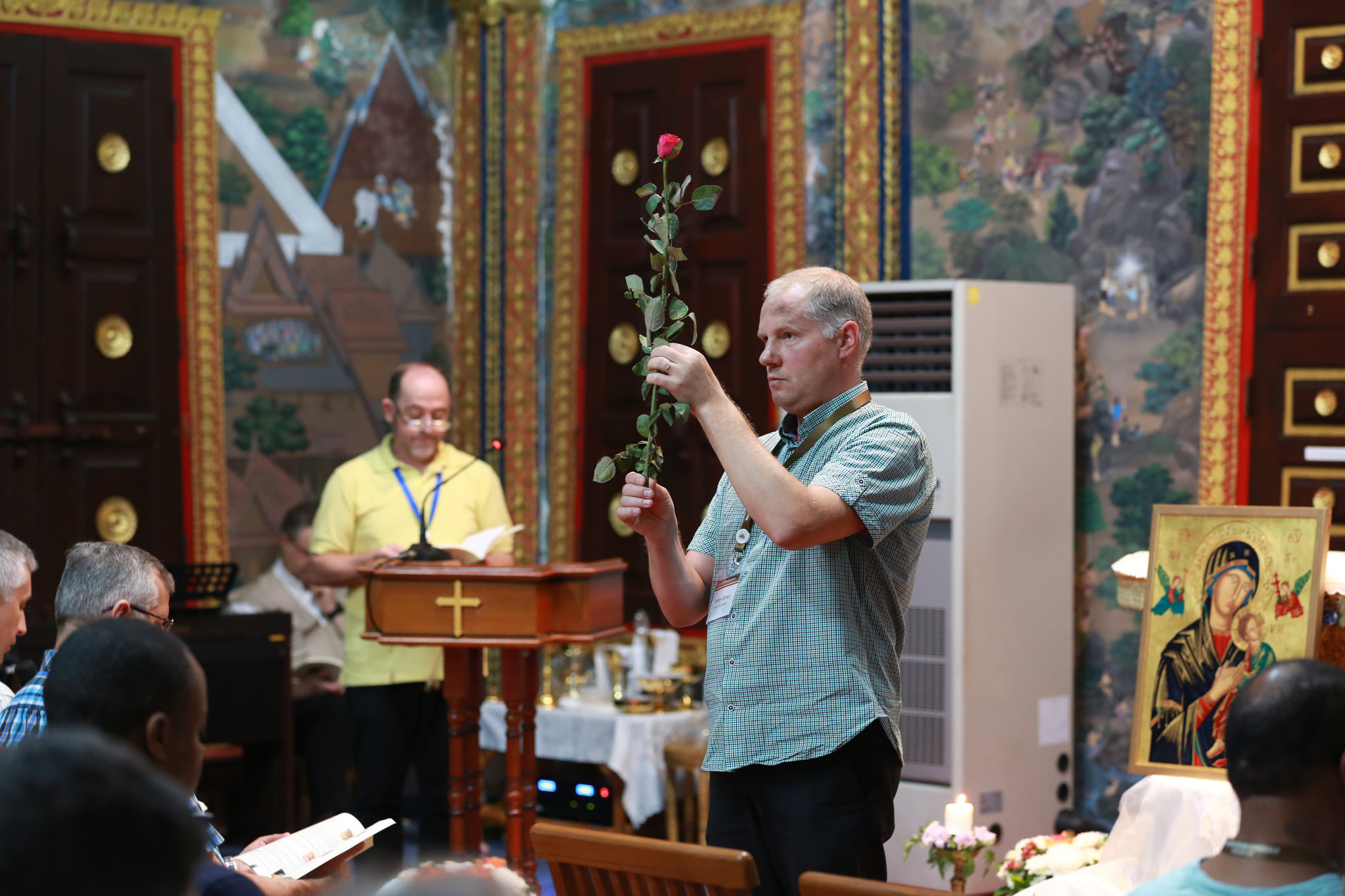
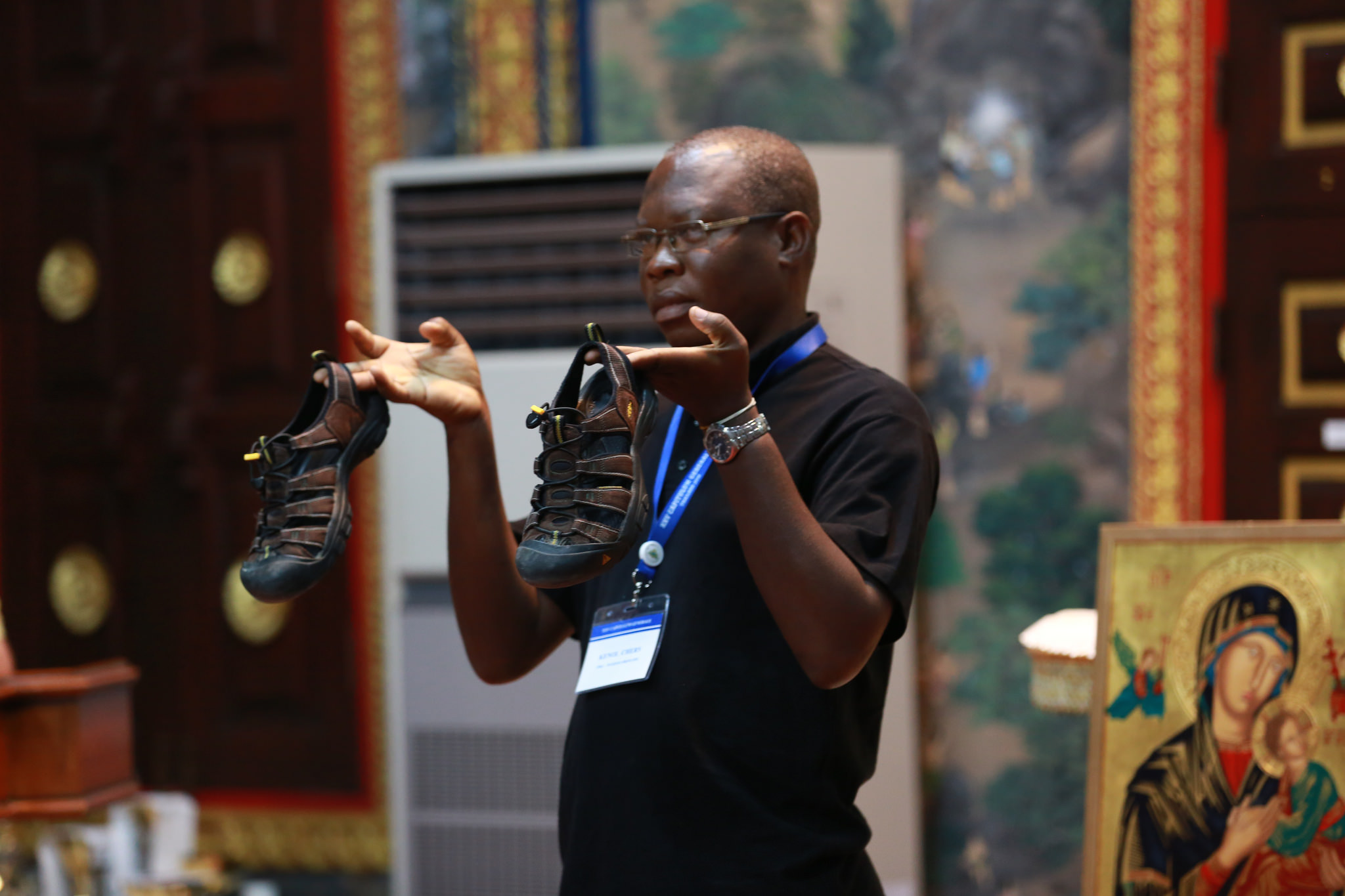 Later in the morning we gathered in the chapel for a 50 minute prayer service in honour of Our Mother of Perpetual Help.
Later in the morning we gathered in the chapel for a 50 minute prayer service in honour of Our Mother of Perpetual Help.
Ronald J. McAinsh, C.SS.R.



